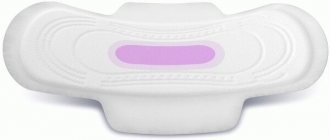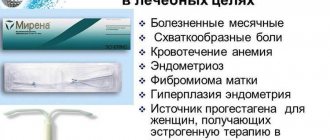In a healthy woman, menopause occurs at 45-55 years of age. This process is accompanied by the extinction of the functions of the reproductive system. Despite the absence of a menstrual cycle, experts recommend that women who have regular sex life use protection during menopause. There are several methods on how to protect yourself during menopause in order to protect yourself from an unplanned pregnancy.
Is it possible to get pregnant during menopause?
The period of menopause is characterized primarily by the loss and extinction of reproductive function. Its beginning is indicated by the cessation of menstruation. That is, one might think that sex cells no longer mature, there is nothing to fertilize, pregnancy is impossible, so you can have sex without contraception. This opinion is fundamentally wrong. The fact is that not all women have periods that stop abruptly, once and for all. For some, they can occur regularly once every 3-4 months, that is, the sex cells mature, and it is also possible to become pregnant.
Let’s say that a woman’s period stops abruptly and for good, but even this does not give her a reason to relax. The fact is that a woman’s body retains some of the eggs in the follicles for several years after the complete cessation of menstruation. They are quite viable and can be fertilized through unprotected sex.
Attention! During menopause, you need to be especially careful to protect yourself from unwanted pregnancy also because the tissues of the genital organs lose their elasticity. Also, during this period, a woman should not have an abortion, as this is accompanied by the risk of inflammation of the cervix and other organs of the reproductive system.
Some ladies, on the contrary, strive to get pregnant during menopause, as they believe that childbirth can prolong their youth. To some extent, this is true, but if you have made the difficult decision to give birth during menopause, then you should be prepared for the fact that this birth will definitely not be simple and painless.
Typically, childbirth during menopause is accompanied by poor kidney function, prolapse of the pelvic organs and a number of other problems, the most important of which is that childbirth still will not save you from the onset of menopause, but will only help to delay it slightly.
Do I need to protect myself?
With the onset of menopause, the ovaries reduce their activity, eggs are produced less frequently, and therefore full ovulation becomes a rare occurrence.
In medicine, there are cases where a woman after 45 years of age became pregnant even in the absence of a menstrual cycle. Experts explain this phenomenon by the fact that hormonal changes in the body can take 3-5 years. That is why, despite significant changes in the reproductive system, you should not abandon the use of contraception during menopause.
Women who are sexually active are recommended to take birth control pills during menopause even at 50 years of age. Oral contraceptives will help avoid unwanted pregnancy, which more often ends in abortion.
The tissues of the female body at this age reduce their elasticity and firmness, so it is very difficult to dilate the cervix and carry out a high-quality abortion. This procedure is dangerous for patients over 45 years of age. Late abortions as a result of unplanned conception can cause the development of inflammatory processes, endometriosis, uterine fibroids and cancer.
It is also necessary to use contraception during menopause because for many the cycle does not stop completely immediately. The amount of menstrual flow may decrease or be completely absent, which indicates the onset of menopause, but after some time the cycle may resume.
Why is it necessary to use contraception during menopause?
Having children is wonderful. And this is doubly wonderful when a woman at the age of menopause consciously takes this step, weighing all the pros and cons. However, if pregnancy happens unexpectedly, then you need to understand all the risks that will await a woman if she decides to give birth:
- It is preferable to give birth when everything is still in order with hormonal levels, that is, before 40 years of age. After this age, the number of complications during childbirth increases sharply, and the worst thing is that these same complications can spread to the newborn child.
- Children who were born to elderly parents have a very high risk of developmental disorders and a high likelihood of genetic diseases.
- When giving birth to a child at an advanced age, you need to understand that you don’t have much time left to raise him and put him on his feet. Also, such a child is often left quite early without the support of his mother.
- Having an abortion during menopause is not the right decision.
That is, the most reasonable decision would be to continue using contraception during menopause.
A doctor will help you choose the right remedy if a woman finds it difficult to do it herself. You also need to see a doctor because during menopause, some contraceptives are no longer reliable and it is no longer advisable to use them.
When are hormonal contraceptives dangerous?
A woman taking oral contraception during menopause should remember that such drugs can only be used after consultation with a gynecologist. The doctor will definitely prescribe a series of tests and conduct a general examination. Based on the results of the examination, he will determine whether the patient can take hormonal contraceptives.
They are prohibited from drinking if a woman:
- Smokes. Nicotine constricts blood vessels and slows blood circulation. Additional amounts of hormones can lead to blood clots and disruption of the cardiovascular system.
- Is overweight . Hormones often add extra pounds.
- During menopause she suffered a heart attack or stroke and has signs of thrombosis or liver failure. Taking hormonal pills for these diseases provokes exacerbations and complications.
- She has insulin-dependent diabetes mellitus . In this case, the vessels become fragile and cannot withstand the additional load.
Oral contraception
Oral contraception means taking birth control pills during menopause. Their main function is to protect against unwanted pregnancy. But such pills also perform a number of other functions: they help maintain the balance of hormones in the body, as they contain the most important female hormone estrogen.
It goes without saying that the contraceptive pills that are recommended for young women are no longer suitable for menopause. For women of menopausal age, there are their own contraceptive pills, the manufacturers of which try to fully take into account the characteristics of the body of such women. A gynecologist will help you choose birth control pills, and he will also tell you how to take them.
Attention! You need to understand that birth control pills are a hormonal drug, so unforeseen situations and serious side effects may arise when taking it. If this affects you, stop taking these pills and consult a doctor immediately.
Sometimes taking hormonal birth control pills, if not prohibited, is somewhat dangerous. These are cases such as:
- Smoking. If a woman smokes a lot, including during menopause, then nicotine significantly slows down the blood flow and makes it thicker. If the body receives an additional portion of the hormone estrogen, this can lead to the formation of blood clots, their rupture and death.
- Overweight. If a woman is already overweight, then she should not take hormonal drugs, as they only contribute to weight gain.
- Previous heart attacks and strokes. If a person has suffered such diseases at least once in his life, then he becomes more susceptible to them. And hormones only worsen his condition and can provoke an attack again.
- Hormonal contraceptives are contraindicated for women with diabetes. Their blood vessels are already very weak, so they may not be able to withstand the additional load of hormones.
How to protect yourself during menopause
When the first signs of menopause appear, a woman should consult a gynecologist. The specialist will give recommendations on how best to protect yourself during menopause.
There are several methods of contraception that are recommended for use by menopausal women:
- oral contraceptives;
- barrier methods;
- spermicides;
- intrauterine device;
- surgical method.
Oral contraception involves the use of hormonal drugs in the form of tablets. Birth control pills during menopause significantly improve a woman’s well-being and allow her to more easily endure the unpleasant symptoms of this period.
Barrier methods
The barrier method of contraception during menopause means the use of condoms. This is the most popular method: it is accessible, has no contraindications, and does not require specialist consultation. Condoms protect not only from pregnancy during menopause, but also from many sexually transmitted diseases.
Barrier methods also include the use of caps. These are rubber devices that are placed on the cervix before sexual intercourse. Such contraceptives are convenient to use, but they are unreliable, since during intimacy the cap can change its position and fly off.
Oral contraceptives
Oral contraception is perhaps the most convenient method of birth control during menopause. The main function of birth control pills is protection against pregnancy, but at the same time such drugs maintain hormonal balance, as they contain female sex hormones - estrogen, ethinyl estradiol, gestagen, levonorgestrel, desogestrel. You need to take the medications daily, preferably at the same time.
For women of menopausal age, specialists often prescribe the following oral contraceptives:
- Janine;
- Novinet;
- Jazz;
- Yarina tablets;
- drug Regulon.
Oral contraceptives should be selected by a gynecologist for each patient individually. When choosing a drug, the specialist takes into account the woman’s health status and the presence of diseases.
A separate group of birth control pills is the drug Postinor. It belongs to the postcoital emergency contraceptives. It should be taken no later than 72 hours after unprotected sexual intercourse.
It is dangerous for menopausal women to use Postinor and its analogues (Zhenale, Escapel, Ginepriston), since serious hormonal changes occur in the body with the onset of menopause, and the dose of hormones that enters it along with the pill can destroy the endocrine system.
Spirals
A common method of protection against pregnancy is the intrauterine device. It prevents the attachment of a fertilized egg to the wall of the uterus - even if conception occurs, implantation becomes impossible.
When using this method of protection, a woman’s health may deteriorate. The use of an IUD during menopause becomes a common cause of cervical inflammation, heavy menstrual flow and ectopic pregnancy. According to gynecologists, this is an unreliable method of contraception, since there are known cases of pregnancy when using the IUD.
Spermicides
To continue an active and safe sex life, women during menopause can use spermicides - chemical contraceptives. These are substances that form a foamy or slimy layer inside the vagina that sperm cannot pass through. They are represented by various gels, pastes, lubricants, sprays, aerosols, and balls.
The products must be used immediately before sexual intercourse; after it they will not be effective. Spermicides are recommended for use by women who have rare sexual contacts.
This method of contraception cannot often be used. Chemical contraceptives have an adverse effect on the microflora and acidic environment of the vagina. Dryness, itching and burning may occur.
With the onset of menopause, some women resort to a surgical method of preventing pregnancy - tubal retraction. This method reliably protects against pregnancy, but does not exclude infection with sexually transmitted infections. You should choose contraceptive methods during menopause carefully and only with the help of a gynecologist. Properly chosen contraceptives will improve a woman’s health and protect her from possible unpleasant consequences.
We also recommend that you read additional information about sexual intercourse during menopause in a separate article on our website.
Surgery for tubal ligation as a method of contraception
Having performed such an operation, a woman will block the passage of eggs into the uterine cavity. Before deciding on such an operation, you need to understand that this method is final and irrevocable, and it will be impossible to get pregnant even if you strongly desire it. This method is often used by women who already have one or more children, and they do not intend to become pregnant again.
Thus, menopause is not a reason to give up on sexual relations with the man you love; the main thing is to have sex correctly. Typically, during menopause, women become more open and relaxed and begin to desire intimacy more, which can bring new bright colors to their sex life. And if you do not protect yourself during menopause, a vibrant sex life may fail.
Interesting video on the topic:
About
What is menopause
Menopause is a period of decline of reproductive function. The ovaries stop producing estrogens, and over time the woman completely loses the ability to conceive. The menstrual cycle changes due to hormonal changes.
The duration of menopause is on average 10-12 years and goes through three stages:
- premenopause _ The beginning of hormonal changes. During this period, menstruation still occurs, but the cycle becomes irregular, menstruation is delayed, bleeding is more heavy or, conversely, scanty. Eggs continue to be produced, so there is a possibility of pregnancy. The first symptoms appear: hot flashes, mood swings. The duration of the period is about 5 years.
- menopause. It begins with the complete cessation of menstruation and lasts approximately 12 months. Characterized by complete loss of ovarian function and increased symptoms.
- postmenopause . It occurs after a complete absence of menstruation for a year and lasts until the end of life. During this period, hormonal levels stabilize and unpleasant symptoms disappear. A woman permanently loses the ability to conceive.










